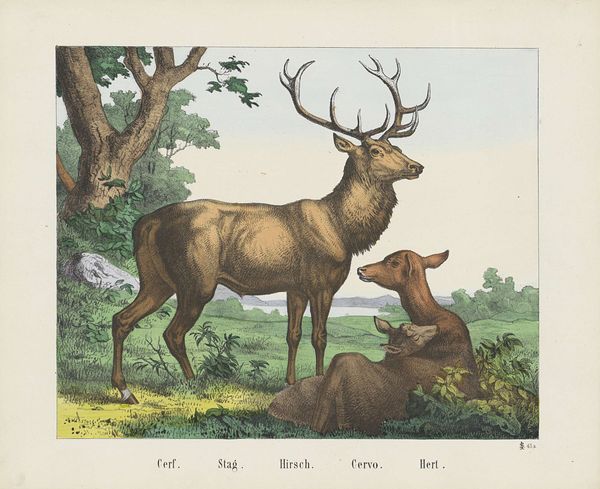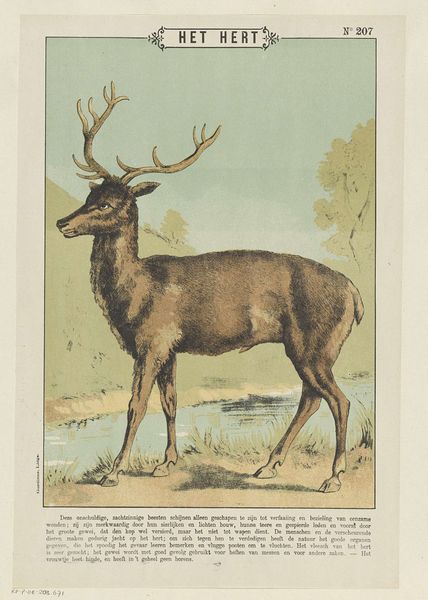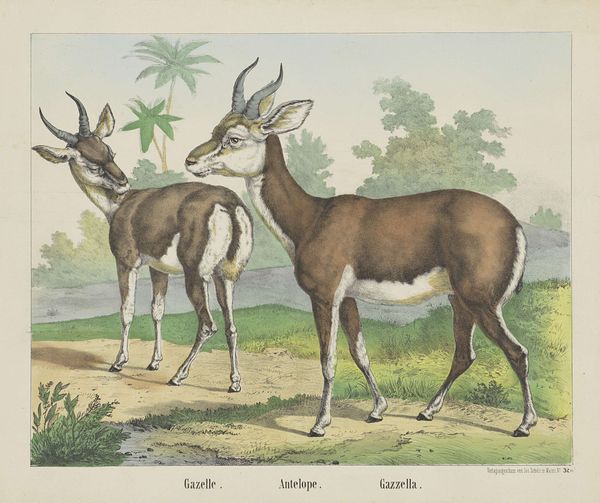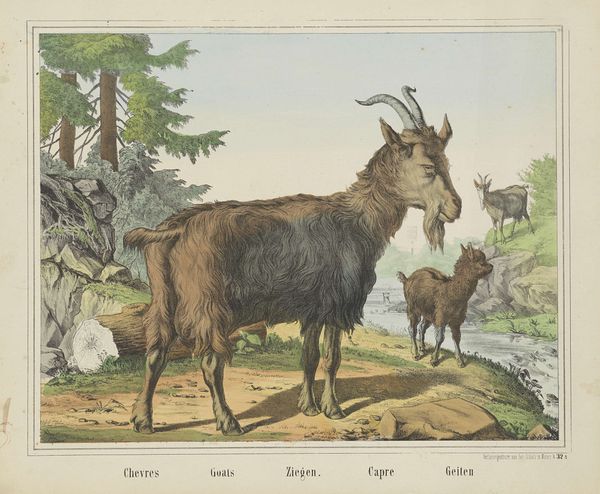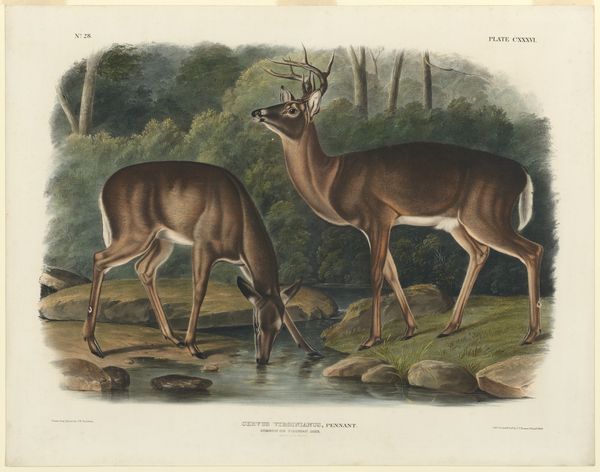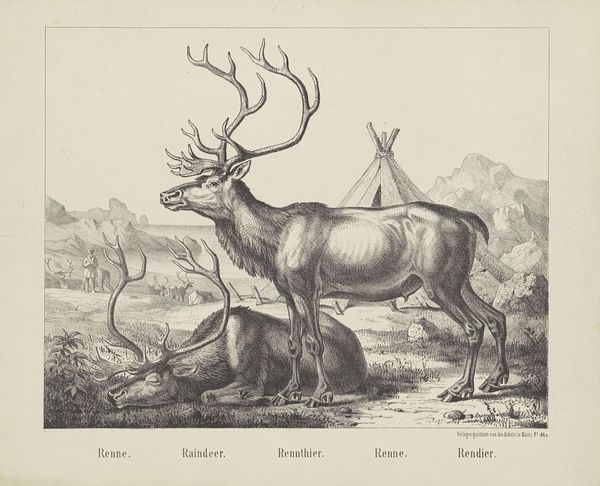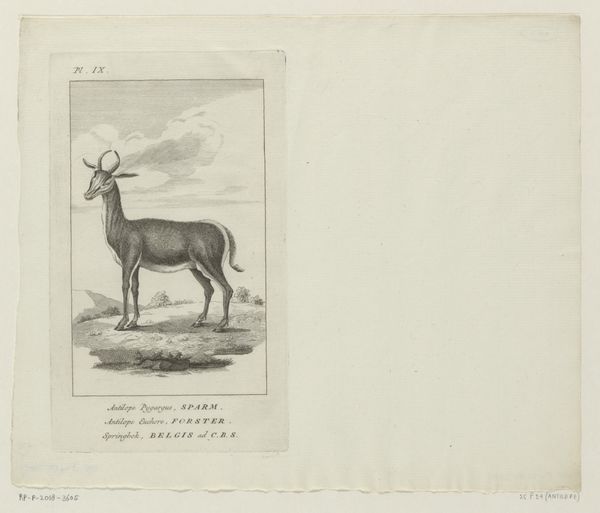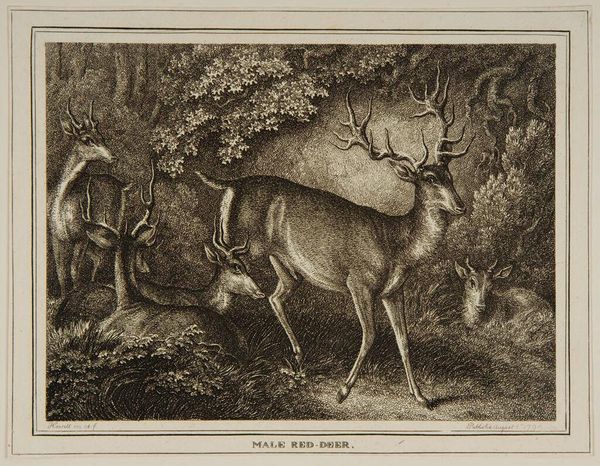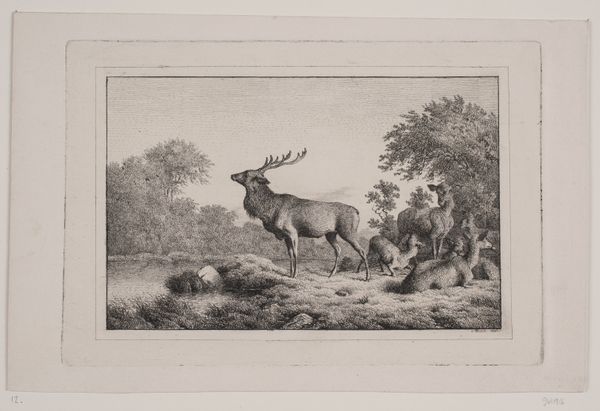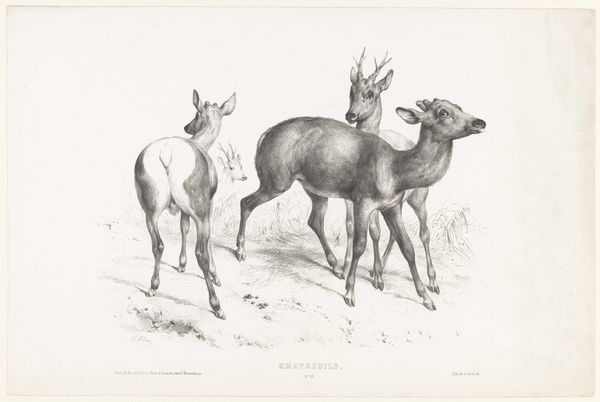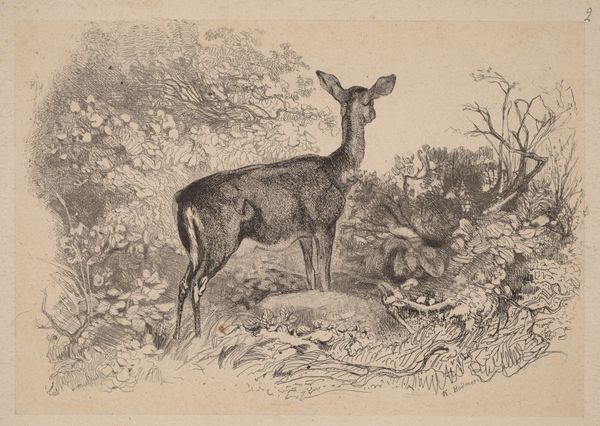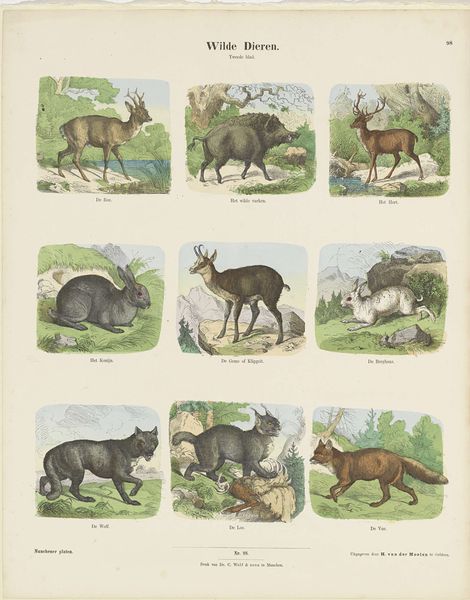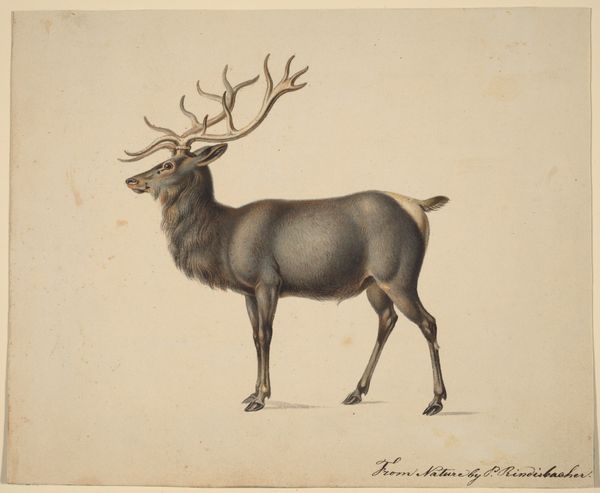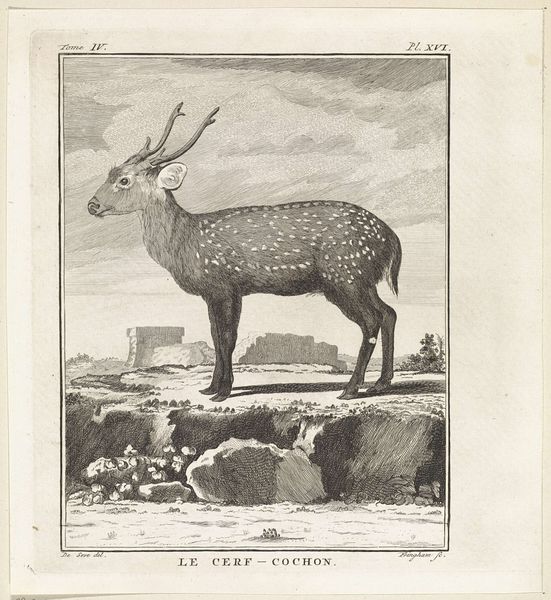
print, watercolor
#
animal
# print
#
landscape
#
watercolor
#
coloured pencil
#
watercolour illustration
#
genre-painting
#
watercolor
#
realism
Dimensions: height 349 mm, width 433 mm
Copyright: Rijks Museum: Open Domain
This print of a roe deer by Firma Joseph Scholz was made using chromolithography. This was a revolutionary method that allowed for colored images to be mass-produced. Instead of a single artist painstakingly hand-coloring each print, chromolithography depended on the division of labor. Each color was applied using a separate limestone matrix, made by specialist craftsmen. Imagine teams of workers, each responsible for a single hue, layering them precisely to create a final image. The texture of the print reflects this process; look closely, and you can see the slight overlaps and subtle variations in color density. The technique democratized access to images, making them more affordable and widely available. Yet it also changed the nature of artistic work. Here, we can see the impact of industrial production on aesthetics, and the artistry inherent in the process itself. It reminds us that even mass-produced items can carry significant cultural and social weight.
Comments
No comments
Be the first to comment and join the conversation on the ultimate creative platform.
